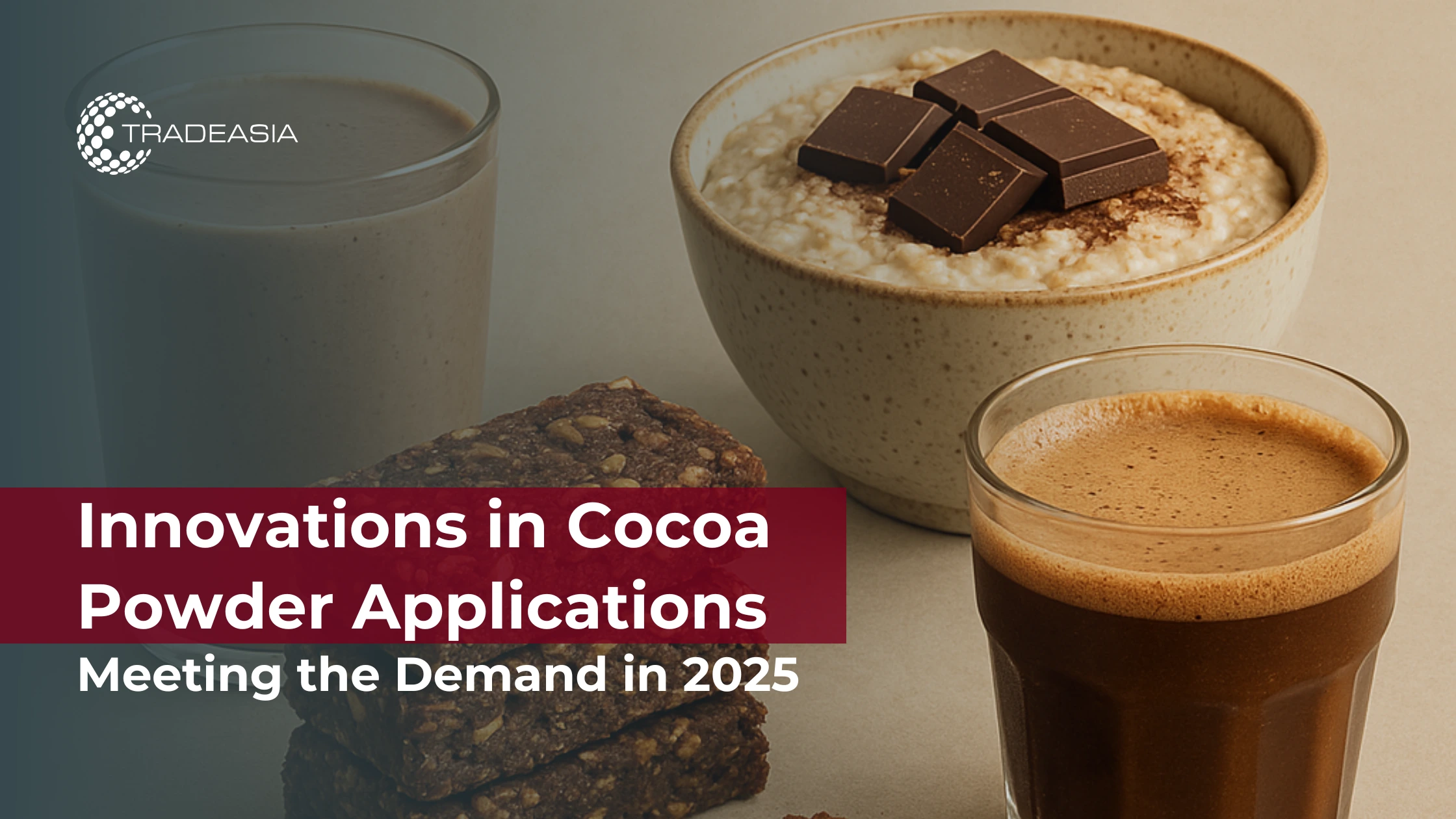Introduction to Organic Cocoa Powder in Beverages
The demand for organic ingredients in beverages has surged, and cocoa powder is no exception. As consumers grow more health-conscious, chocolate milk brands are turning to organic cocoa powder to offer both indulgence and nutrition. Organic cocoa is minimally processed, derived from cacao beans grown without synthetic fertilizers or pesticides, and retains a more robust natural flavor.
In chocolate milk, the quality of cocoa powder directly impacts taste, aroma, and color. Conventional cocoa powders often include alkalizing agents or additives, whereas organic cocoa is known for its purity and deep chocolate profile. This natural characteristic makes it a premium choice for manufacturers who want to appeal to discerning, health-focused customers.
According to a report by Grand View Research, the global organic cocoa market is expected to grow significantly, driven by beverage innovations like protein shakes, flavored milks, and functional drinks. This trend supports the adoption of organic cocoa in traditional and fortified chocolate milk products.
Key Benefits of Using Organic Cocoa Powder in Chocolate Milk
One of the standout advantages of using organic cocoa powder in chocolate milk is its clean-label appeal. With increasing scrutiny on food labels, consumers seek familiar, natural ingredients. Organic cocoa fits this demand perfectly, signaling quality and health-conscious choices. It aligns with trends like “free from” additives, non-GMO, and sustainable sourcing.
Nutritionally, organic cocoa contains higher antioxidant levels than many commercial alternatives. It's rich in flavonoids that may support heart health, cognitive function, and mood regulation. Adding organic cocoa powder to chocolate milk not only enhances taste but also boosts its nutritional value—a key differentiator in a saturated market.
Moreover, the flavor integrity of organic cocoa is superior. Its less-processed profile maintains the complexity of cocoa’s natural notes. This allows producers to deliver rich chocolate milk without relying on artificial flavorings. For premium or gourmet beverage lines, this quality becomes a unique selling proposition (USP).
Market Demand and Trends for Organic Ingredients
Market analytics show a significant rise in demand for organic and sustainable beverage ingredients. Millennials and Gen Z consumers, in particular, drive this shift. They prioritize transparency, ethical sourcing, and environmental impact when selecting products. Chocolate milk manufacturers tapping into these expectations can expand their market share through strategic ingredient sourcing.
In regions like Southeast Asia, the combination of rising middle-class income and increased awareness of healthy eating has accelerated organic beverage consumption. Chocolate milk, often seen as a children’s drink, is evolving into a health-conscious option for adults too—especially when fortified with calcium, protein, and organic cocoa.
As reported by Mintel and Euromonitor, over 60% of consumers are willing to pay a premium for products containing organic or sustainably sourced ingredients. This premium positioning offers manufacturers a pricing advantage, especially in export markets where organic certifications add brand value.
Product Formulation Tips for Chocolate Milk with Organic Cocoa
Formulating chocolate milk with organic cocoa powder requires balancing flavor, solubility, and mouthfeel. Unlike alkalized cocoa, organic variants tend to have higher acidity, which can influence the final pH and stability of milk-based beverages. Manufacturers must adjust emulsifiers or sweeteners accordingly to maintain taste consistency and shelf life.
It’s essential to choose the right grind size and fat content. High-fat organic cocoa (typically 20-22%) offers richer flavor and a creamy texture ideal for premium chocolate milk. For low-calorie or fortified lines, defatted cocoa options (10-12%) may be preferred. Solubility can be enhanced through pre-blending with natural stabilizers like lecithin or carrageenan.
Thermal stability is another key aspect. Organic cocoa must withstand pasteurization or UHT treatment without significant flavor degradation. This is where working with suppliers who offer beverage-grade cocoa powder optimized for dairy applications becomes critical【4】. Product trials and pilot batches are recommended before scale-up.
Supplier Considerations for Food-Grade Organic Cocoa Powder
Sourcing the right supplier for organic cocoa powder is crucial for maintaining product quality and compliance. Certifications such as USDA Organic, EU Organic, or JAS (for Japan exports) are non-negotiables. Additionally, suppliers should provide full traceability and documentation including pesticide residue analysis and microbiological safety reports.
Partnering with a supplier that understands B2B beverage manufacturing needs—from supply logistics to batch consistency—is essential. Look for those who can offer customization (e.g., particle size, fat percentage), sample support, and flexible minimum order quantities (MOQs). Reliability in delivery schedules is especially critical for maintaining production timelines.
At Food Additives Asia, we connect you with verified global suppliers of organic cocoa powder. With competitive pricing, quality assurance, and logistics support, we empower chocolate milk manufacturers to innovate and scale efficiently.

Leave a Comment